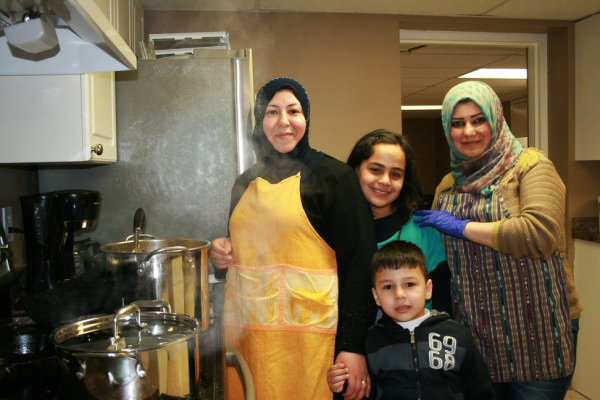Cultivating Soil & Relationships – Shanika’s Reflections
Others, Community , Creation Care , RefugeesContributed by: A Rocha

Written by Shanika Thomas
I write this reflection as I head into my fourth week of my internship and it comes at a good time as I feel comfortable with the flow of A Rocha’s involvement in the inner city Hamilton core, and what it means for me to be part of the team.
Let me first say that as a student in health care and often confined to the library and laboratory, the opportunity to daily engage and work with the community through the stewarding vision of A Rocha has been a blessing.
As community garden intern might suggest in the title, I spend about half of my time in urban gardens. A couple days a week I work for a few hours with inner city school elementary classes that come out and help with whatever needs to be done, such as weeding, planting and watering. Having classes join us is a good opportunity for the kids to watch and learn the process of how fruits and vegetables end up on their dinner tables ready to be eaten.
That being said, one of the gardens is behind a Food Basics and it is always a surprise to a few kids that the food we grow does not go straight into that grocery store but rather to food banks and soup kitchens! Sometimes we will see children bring out their families on Saturdays for a whole family affair. It is neat to see relationships and community identity grow through these mornings.
There are many gardens in Hamilton, however Carrie (Earth-to-Table project coordinator) and I focus specifically on two of them because they are in neighbourhoods in which families and kids are at risk of experiencing food insecurity and poverty. These neighbourhoods have been identified with a high population of immigrants and refugees. Working with newcomers to Canada and gardening, harvesting, cooking and just being in fellowship with these people has been a focal part of my time with A Rocha.
On Friday, through a program called Earth to Table, we pick out a meal that often involves seasonal food and make a big lunch with the newcomers. The past few weeks for example, many of our desserts have included rhubarb. None of the families we worked with had ever seen or tasted this vegetable and it is fun to see them experience new tastes.
In return for trying a ‘Canadian’ meal, Sunday evenings we will meet again to make dinner and the families will tell us the ingredients they need beforehand and then prepare a traditional dish for us. Biryani has been my favourite so far. Even though we try and talk about diabetes and hypertension, which are associated with unhealthy eating, a huge amount of salt is always added to the dishes which is likely why it tastes so good!
Tuesday evening dinners are a time I am always grateful to be a part of. Families who come are those have moved out of the short-term residence and are getting accustomed to living on their own. We are still able to teach them about cooking, or some English along the way, however the dinners are really a connection point for them to see a familiar face and I have enjoyed building relationships with them in this short time. It is also a chance to listen to any worries or (inevitable) bumps on the road that we can be praying for during this time of transition. I love seeing the families from different cultures joke with each other during the organized chaos of cooking, as well as asking each other how they are settling in – tips are sometimes exchanged in how to navigate in this new country.
The hope is to continue to build on these relationships and extend the meal eating to newcomer gardening time. I am no cook and no gardener, but to be entrusted with this time with these people, in an effort to care and love in God through Jesus has been amazing. It is a privilege to be a vessel for Him.
Shanika worked as a summer intern for A Rocha in Hamilton, Ontario
Original article found at: https://arocha.ca/cultivating-soil-relationships/
